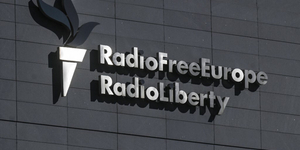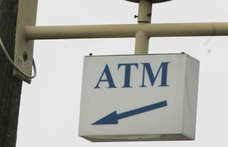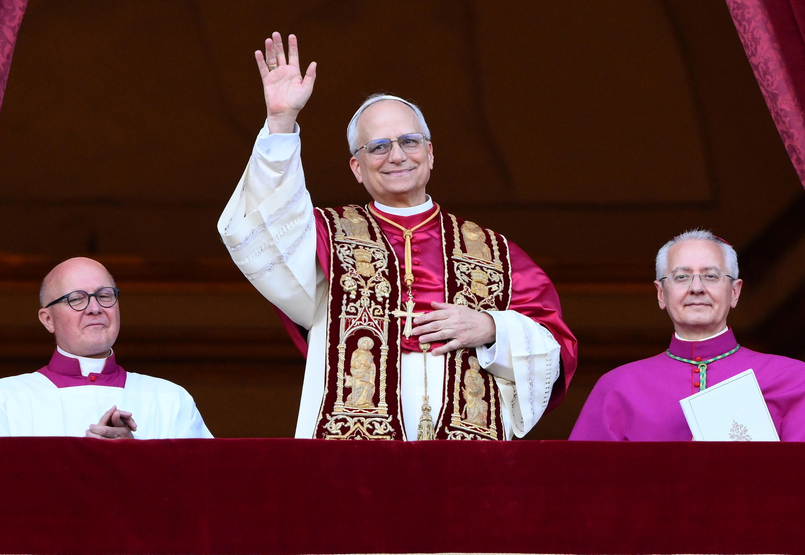Striking season
We should brace ourselves to expect more fraught salary negotiations from the autumn, especially in industries we all depend on.
These 'sensitive industries' are likely to suffer from lengthy strikes because workers in other sectors can't force their employers into a corner. Retail employers at a multinationals strike in vain, since most of them could be replaced and fully trained within a week.
Airport employees have the best chance of getting an improved pay offer, but specialists working for the railways and the other public transport networks are in a good position. This is partly because of their security expertise and party because of the laws that regulate their industries. Locomotive drivers go through years of practical and theoretical training. It's no coincidence that engine drivers threatened to strike at the end of July if Hungarian State Railways lost part of its monopoly. Transport workers' fierce defence of their working conditions is fully understandable, given the pressure for budget cuts and rising inflation.
But nor is it surprising that the government seems unwilling to see strikes that affect hundreds of thousands of travellers as simple workplace conflicts. Strikes affecting infrastructure always become political. The last thing the Gyurcsany government needs is to be blamed not just for doctor's consultation fees but also for a public transport stand-still in Budapest.
The opposition is happy to cheer the workers' demands since they know very well that it is the government that gets blamed for strikes, even if they have nothing to do with the wage demands in the sector in question. This leads to an ideological divide between the employers and the workers, as was seen several times in Hungary over the 20th century. It began with a week-long railway strike that began on 19 April 1904, which brought the country to a complete stand still, and it continued to the 1990 taxi blockade, which set the prime minister and the president against each other and brought about a complete break between the 'parties of the regime change.'
If every group with a chance of promoting its own interests begins to strike, the chances of implementing the convergence programme on deadline are much reduced. At the same time, if the strikes spread, public opinion will be less inclined to blame politicians for everything. It is possible that regular wage conflicts will bring home to voters the facts of economic life, and that parties will eventually be forced to give up using irresponsible spending promises as a campaigning tool.
The strikes throw up another fundamental question about democracy: representation, or whether an organised minority can force its will on the majority. The airport strike on 5 August, which prevented tourists over to see the Formula 1 race from returning home, took place when 50 out of 70 security officials downed tools, while the rest continued working. The question is why did some carry on working? Did they accept Budapest Airport's offered 6.2 per cent pay rise? Or was it that, while they supported the union's strike action and wanted to see a 9 to 10 per cent pay rise, they did not want to endanger their jobs? What role do government authorities have to play in the conflict between the privatised airport's management and its employees?
At the beginning of the 1980s, Margaret Thatcher's government 'declared war' on the traditionally powerful trade unions, forcing the closure of loss-making coal mines. Following the regime change, company owners here had no trouble shutting down major state enterprises, since Hungary's trade unions had been reshaped into a simple conduit for passing on orders over years of communist rule. Today, we are seeing the trade union movement being reborn, as they build alliances and recruit members. Their opponents are foreign multinationals, the local heads of globalised companies and their foreign investors. Their allies are the trade unions of the developed western countries, from whose experiences they are learning, without forgetting to create powerful tensions between foreign and local workers, as happened when the German Federal Post Office outsourced several functions to Hungary.
It's always more pleasant to work for a public service company, even one that is privatised, than for a vast production line. But in capitalism, workers earn exactly as much as they can prise out of their employer. And the government has to understand this, whatever they feel about the strikes that "tarnish the image of the country." It's not about being friendly to foreigners so they think Hungary is a 'success story.' We are in a ditch from which we can only rise by climbing on each other's shoulders, while always bearing in mind that solidarity does not belong to any single right- or left-wing party or movement.
János Pelle
Airport employees have the best chance of getting an improved pay offer, but specialists working for the railways and the other public transport networks are in a good position. This is partly because of their security expertise and party because of the laws that regulate their industries. Locomotive drivers go through years of practical and theoretical training. It's no coincidence that engine drivers threatened to strike at the end of July if Hungarian State Railways lost part of its monopoly. Transport workers' fierce defence of their working conditions is fully understandable, given the pressure for budget cuts and rising inflation.
But nor is it surprising that the government seems unwilling to see strikes that affect hundreds of thousands of travellers as simple workplace conflicts. Strikes affecting infrastructure always become political. The last thing the Gyurcsany government needs is to be blamed not just for doctor's consultation fees but also for a public transport stand-still in Budapest.
The opposition is happy to cheer the workers' demands since they know very well that it is the government that gets blamed for strikes, even if they have nothing to do with the wage demands in the sector in question. This leads to an ideological divide between the employers and the workers, as was seen several times in Hungary over the 20th century. It began with a week-long railway strike that began on 19 April 1904, which brought the country to a complete stand still, and it continued to the 1990 taxi blockade, which set the prime minister and the president against each other and brought about a complete break between the 'parties of the regime change.'
If every group with a chance of promoting its own interests begins to strike, the chances of implementing the convergence programme on deadline are much reduced. At the same time, if the strikes spread, public opinion will be less inclined to blame politicians for everything. It is possible that regular wage conflicts will bring home to voters the facts of economic life, and that parties will eventually be forced to give up using irresponsible spending promises as a campaigning tool.
The strikes throw up another fundamental question about democracy: representation, or whether an organised minority can force its will on the majority. The airport strike on 5 August, which prevented tourists over to see the Formula 1 race from returning home, took place when 50 out of 70 security officials downed tools, while the rest continued working. The question is why did some carry on working? Did they accept Budapest Airport's offered 6.2 per cent pay rise? Or was it that, while they supported the union's strike action and wanted to see a 9 to 10 per cent pay rise, they did not want to endanger their jobs? What role do government authorities have to play in the conflict between the privatised airport's management and its employees?
At the beginning of the 1980s, Margaret Thatcher's government 'declared war' on the traditionally powerful trade unions, forcing the closure of loss-making coal mines. Following the regime change, company owners here had no trouble shutting down major state enterprises, since Hungary's trade unions had been reshaped into a simple conduit for passing on orders over years of communist rule. Today, we are seeing the trade union movement being reborn, as they build alliances and recruit members. Their opponents are foreign multinationals, the local heads of globalised companies and their foreign investors. Their allies are the trade unions of the developed western countries, from whose experiences they are learning, without forgetting to create powerful tensions between foreign and local workers, as happened when the German Federal Post Office outsourced several functions to Hungary.
It's always more pleasant to work for a public service company, even one that is privatised, than for a vast production line. But in capitalism, workers earn exactly as much as they can prise out of their employer. And the government has to understand this, whatever they feel about the strikes that "tarnish the image of the country." It's not about being friendly to foreigners so they think Hungary is a 'success story.' We are in a ditch from which we can only rise by climbing on each other's shoulders, while always bearing in mind that solidarity does not belong to any single right- or left-wing party or movement.
János Pelle


















